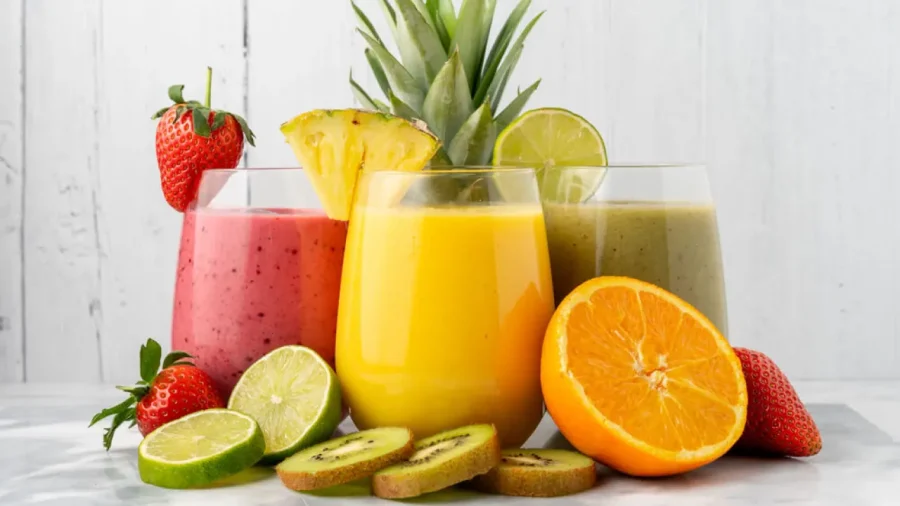Fruit juice provides vitamins, minerals and polyphenolsTrusted Source in an easily accessible form, and is part of the daily diet of many people, providing one of the recommended five a dayTrusted Source (400g) of fruit and vegetables.
However, many people are concerned about the sugar content of fruit juice — a 250 ml serving of orange juice contains 22 grams, or 4.5 teaspoons of sugar — but studiesTrusted Source suggest that adverse health effects, such as tooth decay and some weight gain, are outweighed by the health benefitsTrusted Source.
To investigate whether fruit juice causes weight gain, teams from Toronto and Boston reviewed 42 studies into the effect of drinking 100% fruit juice — pure fruit juice with no additives — daily.
They found that in children, there is a positive association between daily drinking of fruit juice and weight gain. In adults, no similar association was seen except in studies that were not adjusted for total energy intake.
In all the studies analyzed, participants consumed at least one 8oz serving (or equivalent) of 100% juice each day. The studies looked at a range of fruit juices — pomegranate, berries, tart cherry, apple, citrus, or grape juice — and compared them with standard diet alone, water, or diet or low calorie drinks.
Some were prospective cohort studies, and others were randomized control trials. Not all of the studies assessed total energy intake of the participants, which may introduce an element of inaccuracy.
The researchers performed several statistical analyses on the data to assess whether there was any link between daily fruit juice and weight.
Weight changes, while small, varied with the type of juice ingested. Some were associated with weight gain, and others with some weight loss, as Kelsey Costa, a registered dietitian nutritionist and national media spokesperson for Dietitian Insights, who was not involved in the study, told MNT:
“Despite there being no substantial disparities in weight changes across different juice types in this study, an emerging trend favored juices derived from so-called ‘superfoods’.”
“Juices such as pomegranate, various berries (like goji, barberry, bilberry, and currant), and tart cherry demonstrated a tendency towards weight reduction.










